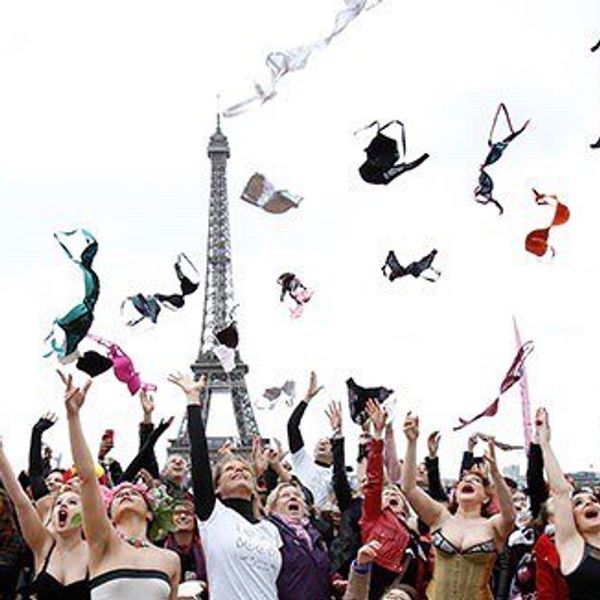Next to China and the Middle East, the Russian Federation is a central part of modern U.S. foreign policy. The country’s increasing role in international affairs has prompted media commentators to draw parallels to the Cold War, the conflict between the United States and the federation’s predecessor, the Soviet Union. Analyzing Russia’s agenda from this retrospective perspective, however, paints an inaccurate picture of the country’s own foreign policy and attitude toward the United States. To understand some of the surprising actions of the Russian Federation—the annexation of Crimea in 2014, and the endorsement of Donald Trump in the U.S. election, to name a couple—it is important to empathize with their leadership and citizens.
Although many in the Western democracies decry President Vladimir Putin for acting like a despot, the Russian people have repeatedly shown solidarity with their leader. His ability to maintain a high approval rating around 80 percent is testament to that fact. Putin himself values the public support he receives, stating once that their endorsement made him “the wealthiest man… in the whole world."
The annexation of Crimea was a watershed moment for Russians, who saw the reclamation of formerly Russian territory as a national triumph. Russia, as it seemed for both outsiders and citizens, was emerging again as an influential world power. This interpretation is in line with the country’s official policy of “ensuring the security of the country, protecting and strengthening its sovereignty and territorial integrity, and securing its high standing in the international community as one of the influential and competitive poles of the modern world." The annexation also froze relations between the West and Russia—further exacerbated by the war in Ukraine—and led to the economic sanctions imposed on the country. These events are still transforming Russian foreign policy.
Image linked from: dailymail.co.uk/
Putin commands a considerable part of foreign policy as president of the federation, relatively more so than our president for U.S. policy. As such, understanding his perspective in particular gives insight into Russia’s current agenda. Affirmed in his actions by the Russian people, Putin sees a threat to national security in the opposition shown by the U.S. and its European allies. This threat to Russia’s ambitions is partly responsible for the erratic support for new trade unions in Central Asia and Bashar al-Assad’s Syria. In the post-Soviet sphere, Russia is distrustful of foreign actors like the United States, which it views more as a geopolitical rival than a partner. Analysts and experts on Russia have described its foreign policy on its western borders as “defensive, not offensive."
That isn’t indicative of an unwillingness to negotiate. On the contrary, Putin has expressed interest in opening up communication with the West, albeit with more conservative-minded leaders. Donald Trump, whose ideas have leaned more toward the political right, is trusted more by Putin to be open to discussion than Hillary Clinton, based upon a bitter relationship with the latter over Ukraine and Syria. Whether or not there is a deeper relationship between Trump and Putin is not as important to Russia as whether or not they can negotiate an end to the economic sanctions and the thawing of relations.
Imaged linked from: investopedia.com
Above all other factors in Russian foreign policy, the economic downturn trumps all. Entering its third year of recession, Russia’s economy has been steadily deteriorating and hurting Putin’s public standing in the process. Unless the economic sanctions ease up or the price of oil returns to a stabilized high, Putin will be hard-pressed to end the recession. For that reason, his angle for the upcoming election in September has become “the primacy of domestic concerns over foreign policy.”
If Putin can ensure Russia’s economic recovery, it’s likely that its foreign policy will evolve and continue to surprise us. The Russian Federation’s relationship with the rest of the world is highly reactive, observing processes on the world stage and adapting to ensure Russia’s ambitions are always achieved and protected. Assuming fixed policies guarantees that we will never expect what Russia will do next. There is one lesson—coined by former Secretary of Defense Robert McNamara—we can implement in practice from the Cold War: “We must try to put ourselves inside their skin and look at us through their eyes, just to understand the thoughts that lie behind their decisions and their actions.”























